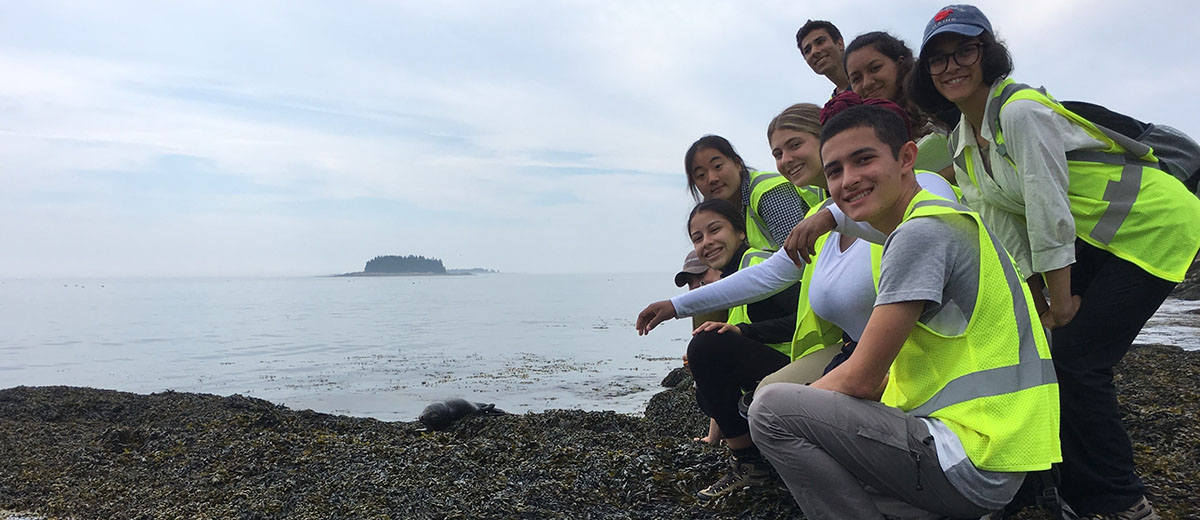Sumner Memorial High School (SMHS) students have been helping the shellfish committees in Gouldsboro and Steuben gather data to help manage the towns’ softshell clam fisheries. On Thursday, March 1, 2018 they traveled to the Maine Fishermen’s Forum in Rockland to present posters that described their work and plans for the coming year.
Heidi Leighton of the Department of Marine Resources and Schoodic Institute Education Research Director Bill Zoellick provided a presentation about the project that described the context for the work that the students did this year. Key elements of this context are that (1) clams are a resource that Maine towns manage directly, (2) the factors that matter in making resource management decisions about clams are highly local, varying from one cove to another, and (3) towns need help in collecting the data required to make good decisions. Linking the capabilities of schools to the towns that they serve, may be able to help towns while, at the same time, providing students with authentic, meaningful, and interdisciplinary science learning opportunities.
Learn more about our Community Science Education programs.
Schoodic Institute hopes to expand the work that it is doing with SMHS, Gouldsboro, and Steuben to other schools and communities. The project will require development of research protocols to collect the kinds of data that town shellfish committees need, curriculum materials and other supports for teachers, and a platform for sharing methods, findings, and new ideas between schools and shellfish committees. Schoodic Institute has begun working with the Gulf of Maine Research Institute (GMRI) to build support for this sharing into the next version of GMRI’s Vital Signs platform. A principal goal of this presentation was to make people in other towns, from other shellfish committees, aware of what we were doing and to invite them to begin working with us. The SMHS students project team provided a clear and informative presentation to the many Fishermen’s Forum participants who wanted to learn more about the project which suggests that doing this research meets a real need.
